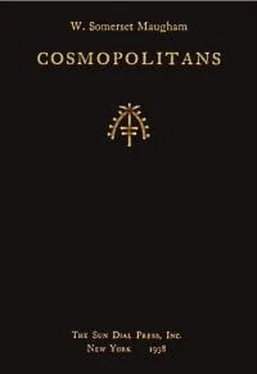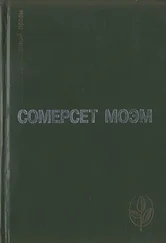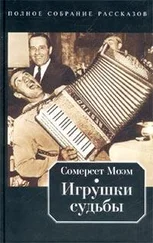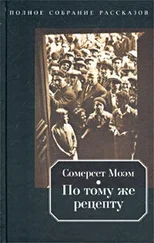Уильям Моэм - Cosmopolitans
Здесь есть возможность читать онлайн «Уильям Моэм - Cosmopolitans» весь текст электронной книги совершенно бесплатно (целиком полную версию без сокращений). В некоторых случаях можно слушать аудио, скачать через торрент в формате fb2 и присутствует краткое содержание. Город: New York, Год выпуска: 1938, Издательство: The Sun Dial Press, INC., Жанр: Классическая проза, short_story, на английском языке. Описание произведения, (предисловие) а так же отзывы посетителей доступны на портале библиотеки ЛибКат.
- Название:Cosmopolitans
- Автор:
- Издательство:The Sun Dial Press, INC.
- Жанр:
- Год:1938
- Город:New York
- ISBN:нет данных
- Рейтинг книги:5 / 5. Голосов: 1
-
Избранное:Добавить в избранное
- Отзывы:
-
Ваша оценка:
- 100
- 1
- 2
- 3
- 4
- 5
Cosmopolitans: краткое содержание, описание и аннотация
Предлагаем к чтению аннотацию, описание, краткое содержание или предисловие (зависит от того, что написал сам автор книги «Cosmopolitans»). Если вы не нашли необходимую информацию о книге — напишите в комментариях, мы постараемся отыскать её.
Cosmopolitans — читать онлайн бесплатно полную книгу (весь текст) целиком
Ниже представлен текст книги, разбитый по страницам. Система сохранения места последней прочитанной страницы, позволяет с удобством читать онлайн бесплатно книгу «Cosmopolitans», без необходимости каждый раз заново искать на чём Вы остановились. Поставьте закладку, и сможете в любой момент перейти на страницу, на которой закончили чтение.
Интервал:
Закладка:
Though his offices were in Kobe, Burton often came down to Yokohama. I happened on one occasion to be spending a few days there, waiting for a ship, and I was introduced to him at the British Club. We played bridge together. He played a good game and a generous one. He did not talk very much, either then or later when we were having drinks, but what he said was sensible. He had a quiet, dry humour. He seemed to be popular at the club and afterwards, when he had gone, they described him as one of the best. It happened that we were both staying at the Grand Hotel and next day he asked me to dine with him. I met his wife, fat, elderly, and smiling, and his two daughters. It was evidently a united and affectionate family. I think the chief thing that struck me about Burton was his kindliness. There was something very pleasing in his mild blue eyes. His voice was gentle; you could not imagine that he could possibly raise it in anger; his smile was benign. Here was a man who attracted you because you felt in him a real love for his fellows. He had charm. But there was nothing mawkish in him: he liked his game of cards and his cocktail, he could tell with point a good and spicy story, and in his youth he had been something of an athlete. He was a rich man and he had made every penny himself. I suppose one thing that made you like him was that he was so small and frail; he aroused your instincts of protection. You felt that he could not bear to hurt a fly.
One afternoon I was sitting in the lounge of the Grand Hotel. This was before the earthquake and they had leather arm-chairs there. From the windows you had a spacious view of the harbour with its crowded traffic. There were great liners on their way to Vancouver and San Francisco or to Europe by way of Shanghai, Hong-Kong, and Singapore; there were tramps of all nations, battered and sea-worn, junks with their high sterns and great coloured sails, and innumerable sampans. It was a busy, exhilarating scene, and yet, I know not why, restful to the spirit. Here was romance and it seemed that you had but to stretch out your hand to touch it.
Burton came into the lounge presently and caught sight of me. He seated himself in the chair next to mine.
“What do you say to a little drink?”
He clapped his hands for a boy and ordered two gin fizzes. As the boy brought them a man passed along the street outside and seeing me waved his hand.
“Do you know Turner?” said Burton as I nodded a greeting.
“I’ve met him at the club. I’m told he’s a remittance man.”
“Yes, I believe he is. We have a good many here.”
“He plays bridge well.”
“They generally do. There was a fellow here last year, oddly enough a namesake of mine, who was the best bridge player I ever met. I suppose you never came across him in London. Lenny Burton he called himself. I believe he’d belonged to some very good clubs.”
“No, I don’t believe I remember the name.”
“He was quite a remarkable player. He seemed to have an instinct about the cards. It was uncanny. I used to play with him a lot. He was in Kobe for some time.”
Burton sipped his gin fizz.
“It’s rather a funny story,” he said. “He wasn’t a bad chap. I liked him. He was always well-dressed and smart-looking. He was handsome in a way with curly hair and pink-and-white cheeks. Women thought a lot of him. There was no harm in him, you know, he was only wild. Of course he drank too much.
Those sort of fellows always do. A bit of money used to come in for him once a quarter and he made a bit more by card-playing. He won a good deal of mine, I know that.”
Burton gave a kindly chuckle. I knew from my own experience that he could lose money at bridge with a good grace. He stroked his shaven chin with his thin hand; the veins stood out on it and it was almost transparent.
“I suppose that is why he came to me when he went broke, that and the fact that he was a namesake of mine. He came to see me in my office one day and asked me for a job. I was rather surprised. He told me that there was no more money coming from home and he wanted to work. I asked him how old he was.
“‘Thirty-five,’ he said.
“‘And what have you been doing hitherto?’ I asked him.
“‘Well, nothing very much,’ he said.
“I couldn’t help laughing.
“‘I’m afraid I can’t do anything for you just yet,’ I said. ‘Come back and see me in another thirty-five years, and I’ll see what I can do.’
“He didn’t move. He went rather pale. He hesitated for a moment and then he told me that he had had bad luck at cards for some time. He hadn’t been willing to stick to bridge, he’d been playing poker, and he’d got trimmed. He hadn’t a penny. He’d pawned everything he had. He couldn’t pay his hotel bill and they wouldn’t give him any more credit. He was down and out. If he couldn’t get something to do he’d have to commit suicide.
“I looked at him for a bit. I could see now that he was all to pieces. He’d been drinking more than usual and he looked fifty. The girls wouldn’t have thought so much of him if they’d seen him then.
“‘Well, isn’t there anything you can do except play cards?’ I asked him.
“‘I can swim,’ he said.
“‘Swim!’
“I could hardly believe my ears; it seemed such an insane answer to give.
“‘I swam for my university.’
“I got some glimmering of what he was driving at, I’ve known too many men who were little tin gods at their university to be impressed by it.
“‘I was a pretty good swimmer myself when I was a young man,’ I said.
“Suddenly I had an idea.”
Pausing in his story, Burton turned to me.
“Do you know Kobe?” he asked.
“No,” I said, “I passed through it once, but I only spent a night there.”
“Then you don’t know the Shioya Club. When I was a young man I swam from there round the beacon and landed at the creek of Tarumi. It’s over three miles and it’s rather difficult on account of the currents round the beacon. Well, I told my young namesake about it and I said to him that if he’d do it I’d give him a job.
“I could see he was rather taken aback.
“‘You say you’re a swimmer,’ I said.
“‘I’m not in very good condition,’ he answered.
“I didn’t say anything. I shrugged my shoulders. He looked at me for a moment and then he nodded.
“‘All right,’ he said. ‘When do you want me to do it?’
“I looked at my watch. It was just after ten.
“‘The swim shouldn’t take you much over an hour and a quarter. I’ll drive round to the creek at half past twelve and meet you. I’ll take you back to the club to dress and then we’ll have lunch together.’
“‘Done,’ he said.
“We shook hands. I wished him good luck and he left me. I had a lot of work to do that morning and I only just managed to get to the creek at Tarumi at half past twelve. But I needn’t have hurried; he never turned up.”
“Did he funk it at the last moment?” I asked.
“No, he didn’t funk it. He started all right. But of course he’d ruined his constitution by drink and dissipation. The currents round the beacon were more than he could manage. We didn’t get the body for about three days.”
I didn’t say anything for a moment or two. I was a trifle shocked. Then I asked Burton a question.
“When you made him that offer of a job, did you know he’d be drowned?”
He gave a little mild chuckle and he looked at me with those kind and candid blue eyes of his. He rubbed his chin with his hand.
“Well, I hadn’t got a vacancy in my office at the moment.”
The Portrait of a Gentleman
I ARRIVED IN SEOUL towards evening and after dinner, tired by the long railway journey from Peking, to stretch my cramped legs I went for a walk. I wandered at random along a narrow and busy street. The Koreans in their long white gowns and their little white top-hats were amusing to look at and the open shops displayed wares that arrested my foreign eyes. Presently I came to a second-hand bookseller’s and catching sight of shelves filled with English books went in to have a look at them. I glanced at the titles and my heart sank. They were commentaries on the Old Testament, treatises on the Epistles of St Paul, sermons and lives of divines doubtless eminent, but whose names were unfamiliar to me; I am an ignorant person. I supposed that this was the library of some missionary whom death had claimed in the midst of his labours and whose books then had been purchased by a Japanese bookseller. The Japanese are astute, but I could not imagine who in Seoul would be found to buy a work in three volumes on the Epistle to the Corinthians. But as I was turning away, between volume two and volume three of this treatise I noticed a little book bound in paper. I do not know what induced me to take it out. It was called The Complete Poker Player and its cover was illustrated with a hand holding four aces. I looked at the title-page. The author was Mr John Blackbridge, actuary and counsellor-at-law, and the preface was dated 1879. I wondered how this work happened to be among the books of a deceased missionary and I looked in one or two of them to see if I could find his name. Perhaps it was there only by accident. It may be that it was the entire library of a stranded gambler and had found its way to those shelves when his effects were sold to pay his hotel bill. But I preferred to think that it was indeed the property of the missionary and that when he was weary of reading divinity he rested his mind by the perusal of these lively pages. Perhaps somewhere in Korea, at night and alone in his mission-house, he dealt innumerable poker hands in order to see for himself whether you could really only get a straight flush once in sixty-five thousand hands. But the owner of the shop was looking at me with disfavour so I turned to him and asked the price of the book. He gave it a contemptuous glance and told me I could have it for twenty sen. I put it in my pocket.
Читать дальшеИнтервал:
Закладка:
Похожие книги на «Cosmopolitans»
Представляем Вашему вниманию похожие книги на «Cosmopolitans» списком для выбора. Мы отобрали схожую по названию и смыслу литературу в надежде предоставить читателям больше вариантов отыскать новые, интересные, ещё непрочитанные произведения.
Обсуждение, отзывы о книге «Cosmopolitans» и просто собственные мнения читателей. Оставьте ваши комментарии, напишите, что Вы думаете о произведении, его смысле или главных героях. Укажите что конкретно понравилось, а что нет, и почему Вы так считаете.










